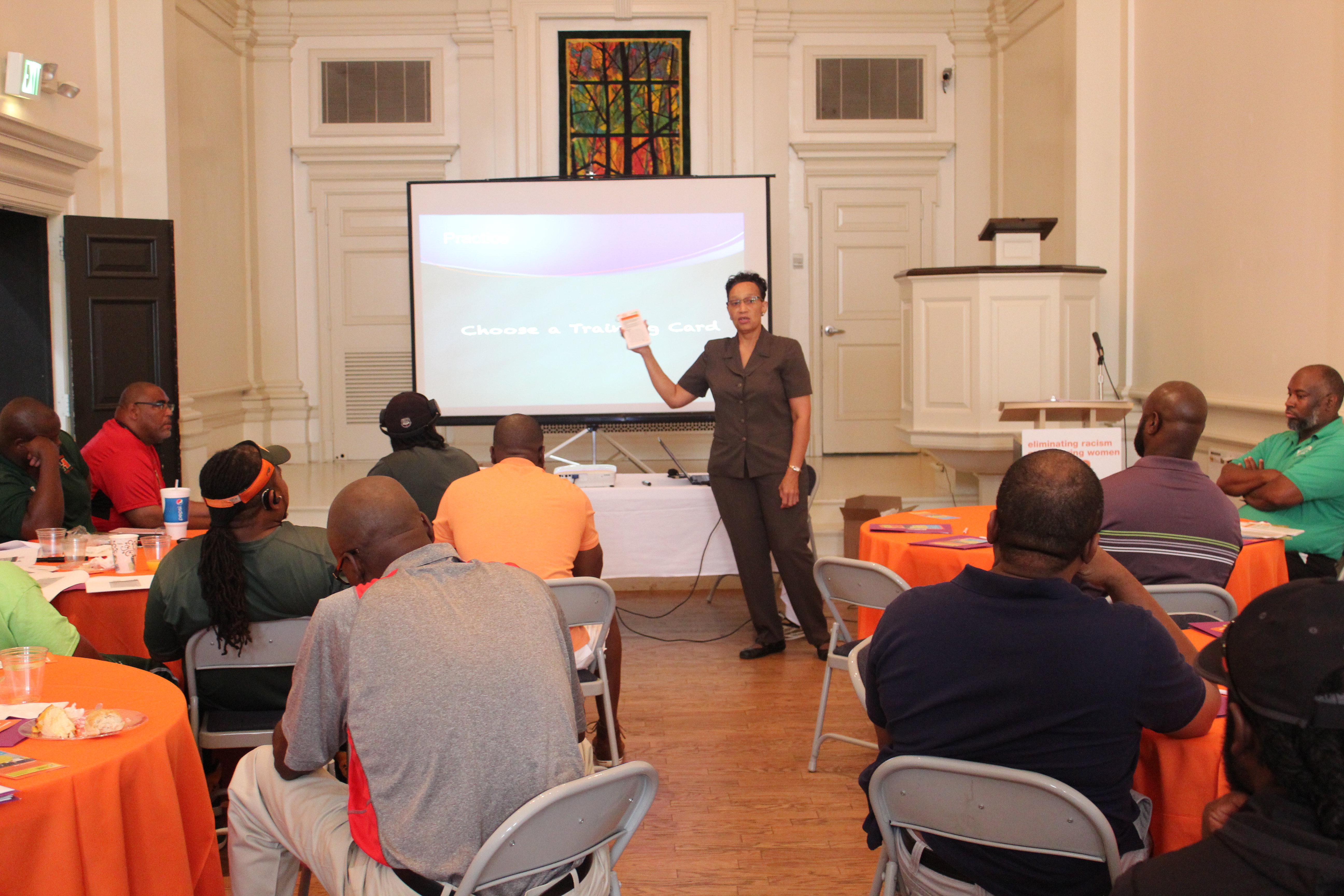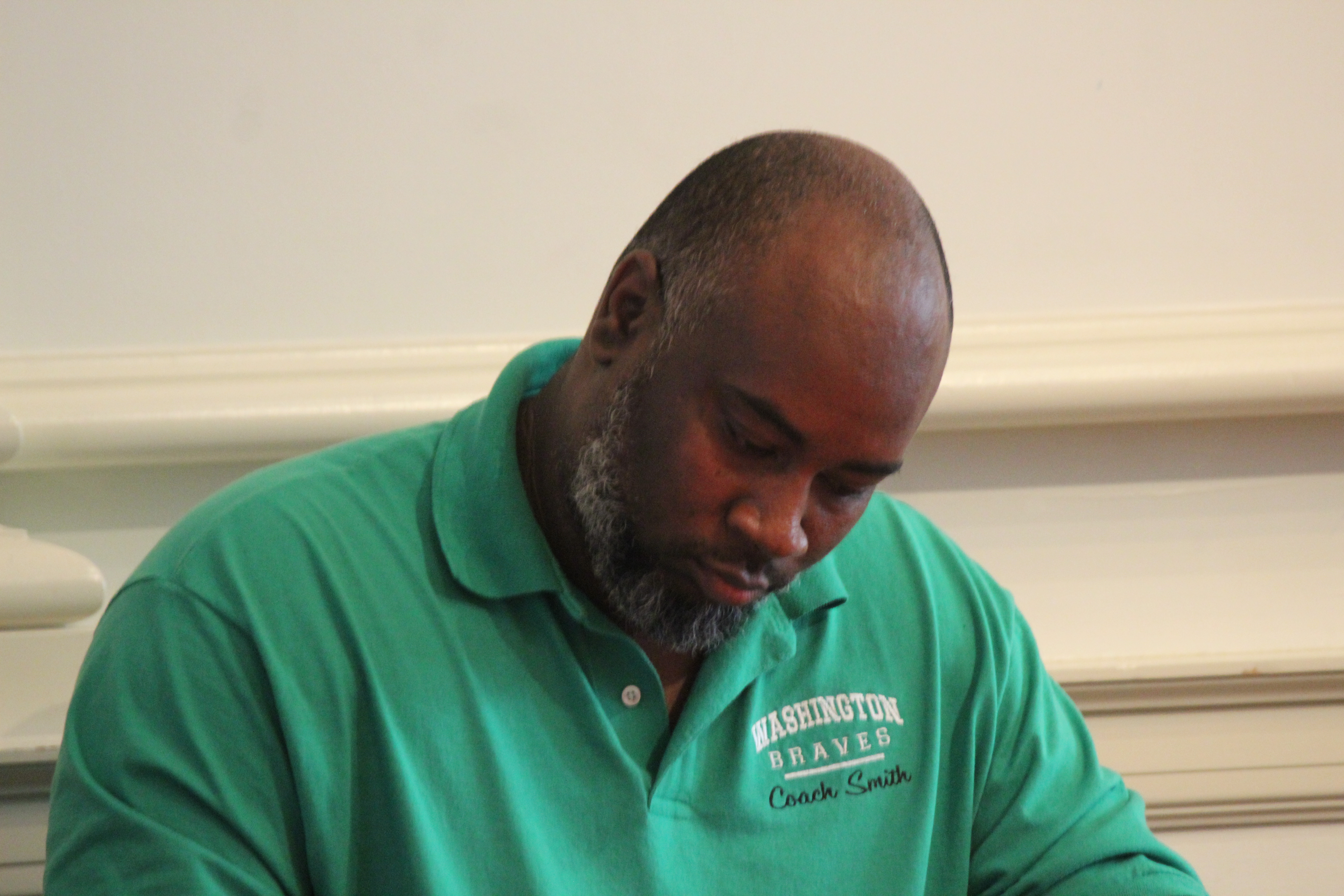
By Ariel Worthy
The Birmingham Times

The YWCA wants to break the stigma of athletes being abusive.
On Tuesday, YWCA Central Alabama hosted “Coaching Boys into Men,” a program designed to help high school coaches in Birmingham City Schools teach their players to respect women and have healthy relationships.
“We contacted (Birmingham City Schools Athletic Director) [Henry] Pope about partnering up to bring this program to some of the coaches,” said YWCA community service coordinator Annetta Nunn, former chief of Birmingham Police. “Hopefully it can spread out to others because we know that many young men look up to their coaches.”
Coaches from Woodlawn, Huffman and Carver High Schools, and Booker T. Washington K-8 were in attendance.
The goal is to address issues like domestic violence, sexual assault and violence, consent, and the discussion of sexual reputation. The program allows coaches to be trained how to properly address the issues.
“I’m excited about this opportunity,” Pope said. “We have young men in our district who don’t have the strong leadership they need at home. We have to teach them more than just X’s and O’s; we have to help them with their character development. We can help these young men become the young men we want them to be – community leaders.”
Nunn said coaches are the best people to talk with the students about these issues because of the relationship they have with their athletes.
“As they train their athletes, [the coaches] are already teaching them about respect, honesty, building relationships,” Nunn said. “So, we’re just equipping them with the tools to incorporate this into what they are doing in the schools and community.”
Athletes get highlighted in abuse cases, but that shouldn’t be how athletes are seen, Nunn said.
“One in three teenagers know someone who’s in an abusive relationship or are being abused,” she said. “That includes everyone, not just athletes. We ought to focus on the ones who are being taught about leadership and responsibility.”
Rogers Smith Jr., athletic director, head football coach and track coach at Booker T. Washington K-8, school said one of the issues with domestic violence is that many of the children see it.
“When a child is brought up in an environment of violence, all they know is violence,” Smith said. “The program is to teach them there are better ways to handle their emotions and stress.”
Working in a K-8 school, Smith said he has seen violent behavior in boys as early as third grade.
“It takes that male mentorship to guide them from that behavior,” he said. “Being a middle school coach, if we can stem some of the behaviors at our levels, it can help tremendously at the high school level. If we want things to change, we have to be willing to change this next group of young men coming up.”
In programs like this it’s important to start with the boys first, said Aubrey Bennett, athletic director at Carver High School.
“The males are more likely to be involved in gangs, drop out of school, to not care about school as much,” Bennett said. “This introduces topics that our students and athletes know are there, but they don’t talk about. All they see is negativity from rap videos, to TV, and even in their houses. We’re presenting a positive thing, showing them things that are important; this gives them a chance to talk about it in a setting with their peers.”
Bennett said athletes have influence and must be mindful of their conduct.
“Of course, it’s important to address it with everyone, but athletes are the pillar of any urban environment, especially in schools, athletics is what drives the schools,” Bennett said. “Carver went from less than 100 total athletes to over 250. With that happening, test scores increased, academic scores increased, graduation rate increased over 40 percent and more kids are going off to college.”



